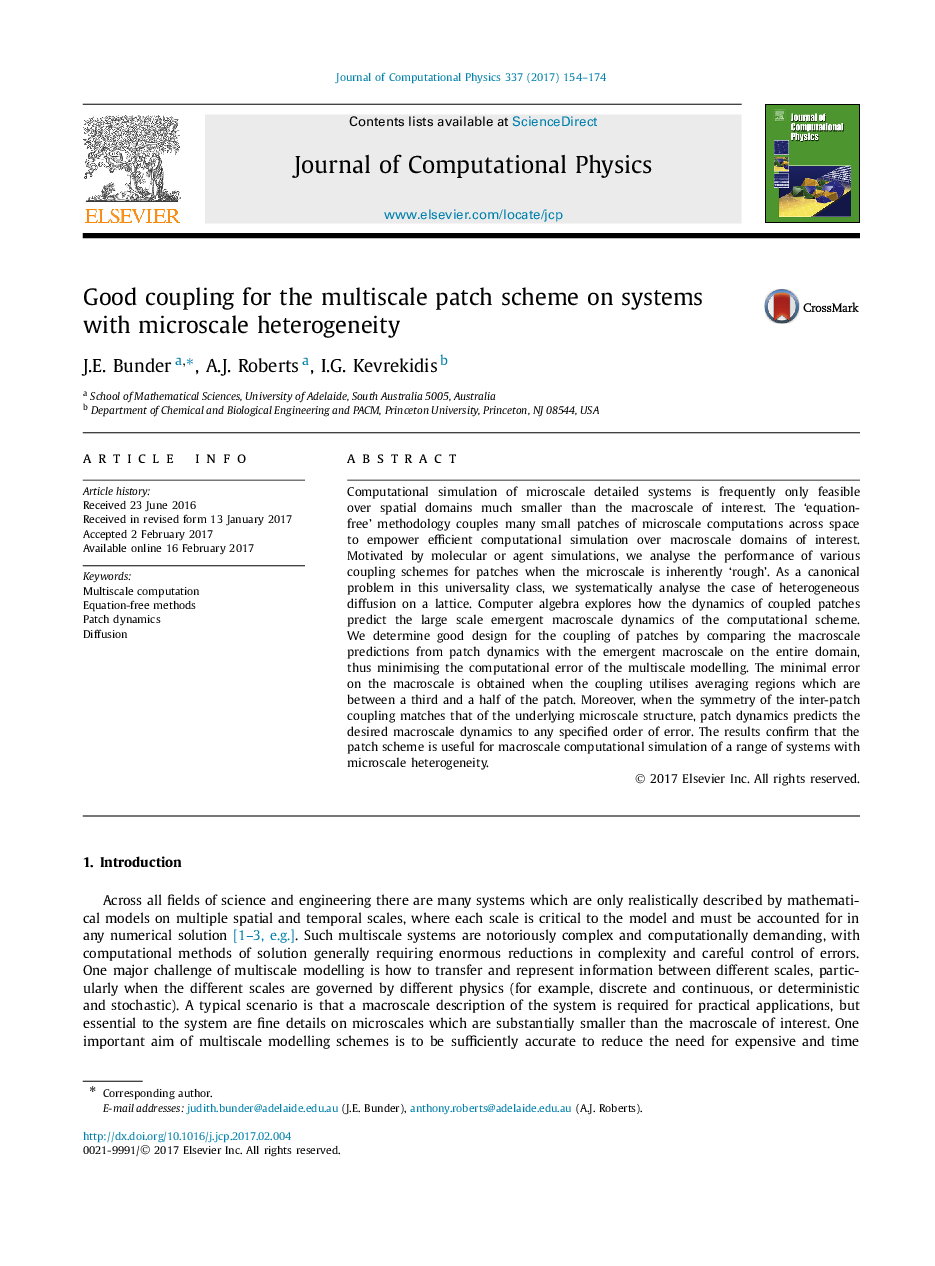| Article ID | Journal | Published Year | Pages | File Type |
|---|---|---|---|---|
| 4967724 | Journal of Computational Physics | 2017 | 21 Pages |
Abstract
Computational simulation of microscale detailed systems is frequently only feasible over spatial domains much smaller than the macroscale of interest. The 'equation-free' methodology couples many small patches of microscale computations across space to empower efficient computational simulation over macroscale domains of interest. Motivated by molecular or agent simulations, we analyse the performance of various coupling schemes for patches when the microscale is inherently 'rough'. As a canonical problem in this universality class, we systematically analyse the case of heterogeneous diffusion on a lattice. Computer algebra explores how the dynamics of coupled patches predict the large scale emergent macroscale dynamics of the computational scheme. We determine good design for the coupling of patches by comparing the macroscale predictions from patch dynamics with the emergent macroscale on the entire domain, thus minimising the computational error of the multiscale modelling. The minimal error on the macroscale is obtained when the coupling utilises averaging regions which are between a third and a half of the patch. Moreover, when the symmetry of the inter-patch coupling matches that of the underlying microscale structure, patch dynamics predicts the desired macroscale dynamics to any specified order of error. The results confirm that the patch scheme is useful for macroscale computational simulation of a range of systems with microscale heterogeneity.
Related Topics
Physical Sciences and Engineering
Computer Science
Computer Science Applications
Authors
J.E. Bunder, A.J. Roberts, I.G. Kevrekidis,
